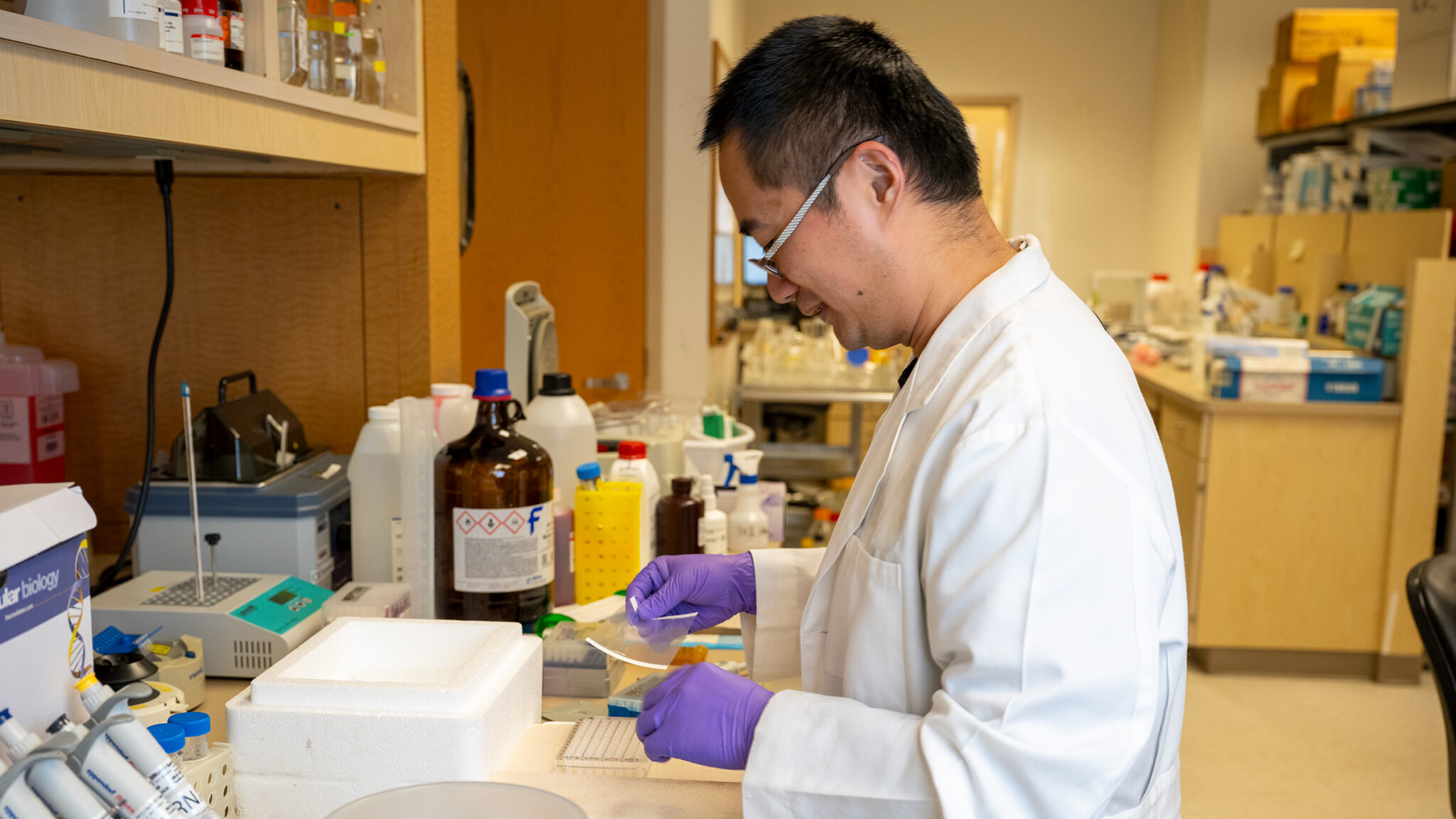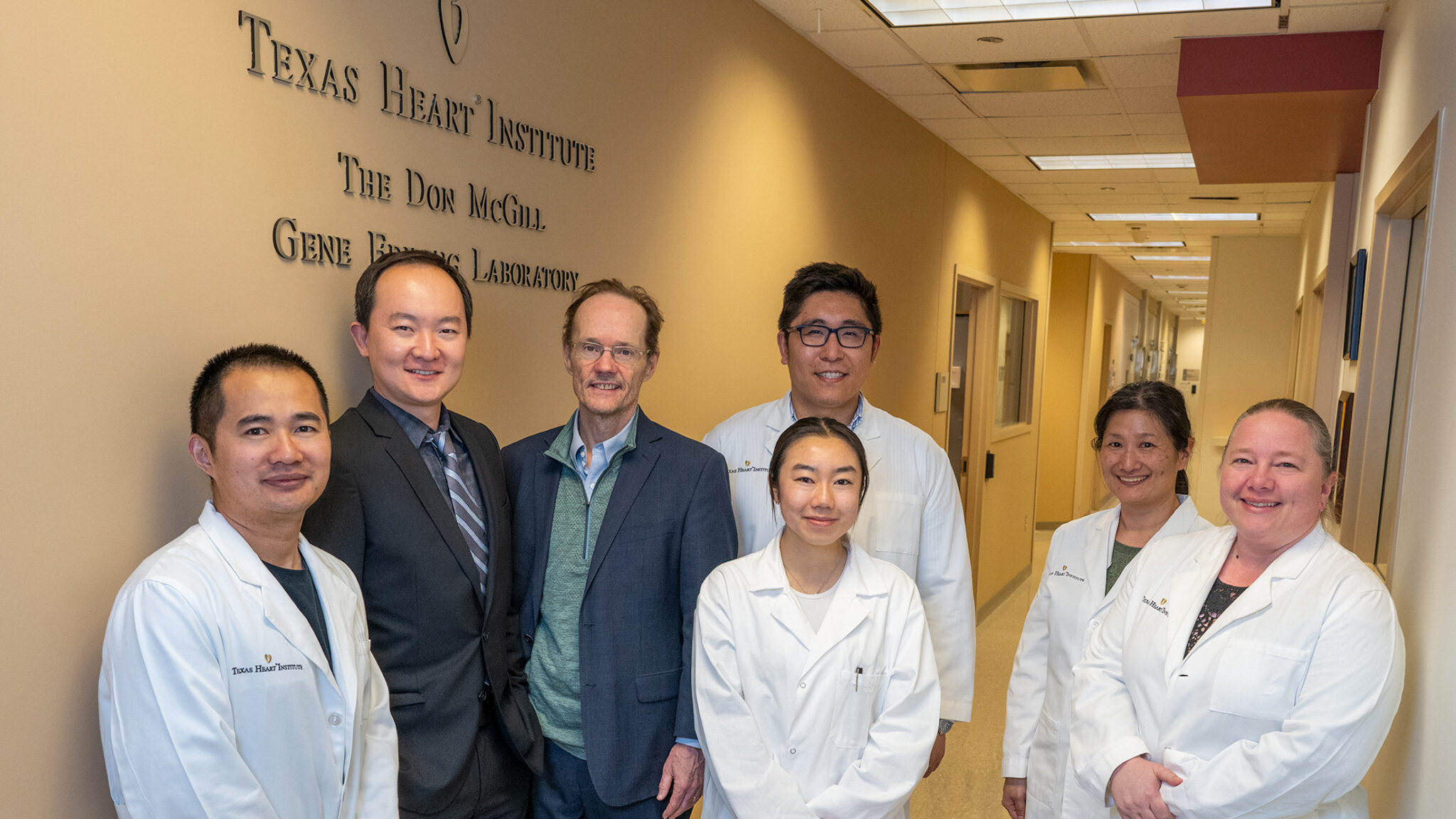
Dr. Martin is an internationally recognized developmental and regenerative biologist who has made fundamental contributions to our understanding of development, disease, and regeneration. He has authored more than 135 peer-reviewed papers in top journals such as Nature, Science, Cell, Developmental Cell, Plos Genetics, Development, and PNAS. Show full bio
Dr. Martin’s research is aimed at understanding how signaling pathways are related to development and tissue regeneration. The ultimate goal of his work is to obtain an in depth understanding of these pathways in order to develop ways to treat congenital diseases and regenerate heart muscle and other adult tissues.
Heart failure is a leading cause of death because heart muscle is non-regenerative. Dr. Martin has helped solve the problem of failed heart muscle regeneration by discovering the important pathways that inhibit heart muscle regeneration. He has shown that adult heart muscle can be molecularly manipulated to promote heart repair.
He and his team recently discovered that Hippo signaling is a critical repressor of adult heart regeneration. His lab has worked with single cell transcriptomics for the past three years and has developed the expertise to perform and analyze data. This recent groundbreaking work on the Hippo pathway in heart size regulation is a landmark study that led to the insight that the Hippo pathway is an inhibitor of adult heart muscle regeneration. Dr. Martin’s insights revealed new avenues for treatment of human heart failure.
Dr. Martin has also made fundamental insights into the role of the transcription factor Pitx2 in atrial fibrillation, the most common sustained arrhythmia in the human population. He made use of the mouse model to investigate Pitx2 in atrial homeostasis but also in left right asymmetric morphogenesis that is essential for human development. Dr. Martin’s studies investigating Pitx2 function in craniofacial development provided insight into the molecular basis of Rieger syndrome. He uncovered a pivotal function for Bmp signaling in endothelial-mesenchymal transition and cardiac valve development. Dr. Martin’s studies uncovered a novel role for canonical Wnt signaling in cardiac progenitor cell diversification. He found the first microRNA implicated in orofacial clefting. Dr. Martin’s studies are highly cited and also reported on by the lay media.
Texas Heart Institute Positions
- Director, Cardiomyocyte Renewal Laboratory
Current Projects
- Genetic pathways & cell signaling
- microRNAs in development and disease
- Bmp signaling in development and human disease
- Pitx2 in cardiovascular development and disease
- Wnt and Hippo signaling in heart development and regeneration
Interests
- Cardiac and craniofacial stem cell biology
- Cell and Developmental Biology
- Molecular Biology and Genetics
- Human Disease
- Cardiovascular Sciences
Education
-
Undergraduate:
Fordham University (Bronx, NY)
-
Medical School:
University of Texas Medical School At Houston
-
Fellowships:
The University of Texas Health Science Center, GSBS, Houston, TX
University of Texas MD Anderson Cancer Center
Academic & Clinical Affiliations
- Baylor College of Medicine
- Faculty Member, The University of Texas Health Science Center at Houston, Graduate School of Biomedical Sciences
- Faculty Member, The Texas A&M System Health Science Center, Graduate School of Biomedical Sciences, College Station, Texas
Certifications
- Texas State Board of Medical Examiners
Honors, Awards and Memberships
- American Heart Association
- Heart Rhythm Society
- Society for Developmental Biology
- The Texas Heart Institute Academic Professional Staff
- Vivian Smith Professor in Regenerative Medicine;
Publications
Recent News

Targeting the Microenvironment Rather Than a Specific Cell Type Could Be the Key to Healing Injured Hearts
Novel Discovery and Milestone in Cardiac Research Revealed in Nature Cardiovascular Research HOUSTON (February 14, 2024) – A groundbreaking scientific study...

Paving the Way for Improved Outcomes in Pediatric Heart Transplantation
Revolutionary Genomic Study Sheds Light on Immune Microenvironment in Transplanted Pediatric Hearts HOUSTON (February 12, 2024) – Pediatric heart transplantation has...

Gene Therapy for Regenerating Heart Cells May Prevent Lethal Arrhythmias After Heart Attack
Researchers at The Texas Heart Institute, Baylor College of Medicine (BCM), and YAP Therapeutics have recently shown that gene therapy...




